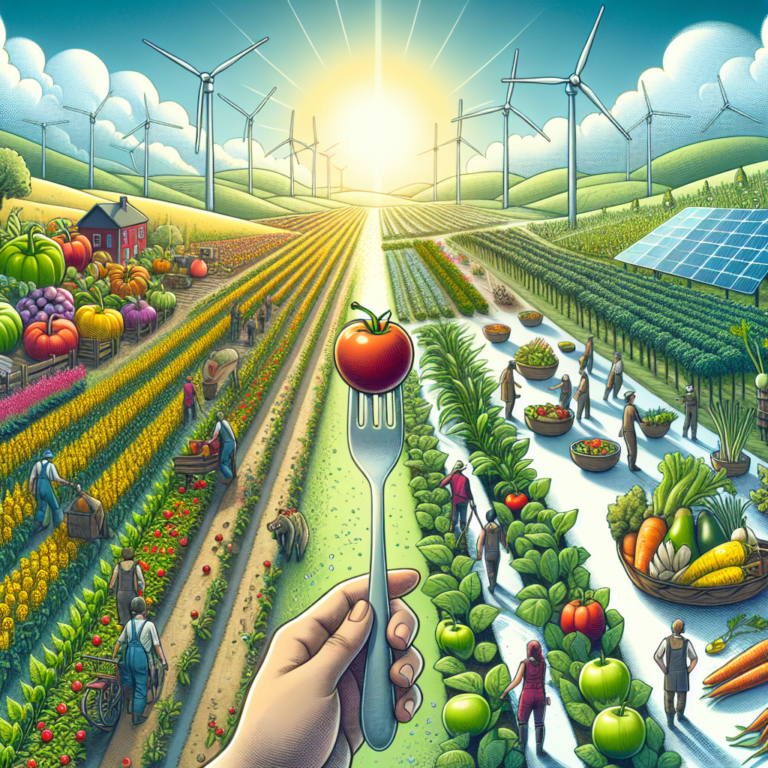The food industry plays a crucial role in our society, as it provides nourishment and sustenance for people all over the world. However, the traditional methods of food production and distribution have come under scrutiny in recent years due to their negative impact on the environment and public health. As a result, there has been a growing movement towards sustainable farming practices that prioritize the health of the planet and the people who consume its products.
One of the key drivers of this movement is the concept of “from farm to fork,” which emphasizes the importance of understanding where our food comes from and how it is produced. By promoting transparency and accountability in the food supply chain, this approach aims to empower consumers to make informed choices about the food they eat and support farmers who are committed to sustainability.
Sustainable farming practices encompass a wide range of techniques and strategies that minimize environmental impact, conserve natural resources, and promote the well-being of animals and farm workers. These practices can include using organic and regenerative agriculture methods, rotating crops to maintain soil health, conserving water through efficient irrigation systems, and reducing food waste through improved harvesting and storage practices.
Additionally, sustainable farming practices often prioritize biodiversity, which is essential for maintaining resilient ecosystems and ensuring the long-term viability of our food supply. By planting a variety of crops and implementing crop rotation techniques, farmers can minimize the risk of pests and diseases, improve soil fertility, and enhance the overall health of their farms.
The adoption of sustainable farming practices has already begun to transform the food industry in significant ways. Consumers are increasingly demanding organic, locally sourced, and ethically produced foods, leading many food companies to incorporate sustainability into their business models. Major retailers and food suppliers are also partnering with farmers to implement sustainable practices and reduce their environmental footprint.
In addition, government initiatives and regulations are playing a role in driving the adoption of sustainable farming practices. For example, the European Union has implemented the Common Agricultural Policy, which provides financial incentives for farmers to adopt environmentally friendly practices such as crop diversification and agroforestry. Similarly, the United States Department of Agriculture offers grants and subsidies to farmers who implement conservation measures on their land.
Overall, the shift towards sustainable farming practices is a positive development for the food industry and the planet as a whole. By prioritizing the health of the environment, farm workers, and consumers, we can create a more resilient and equitable food system that nourishes people while preserving the natural resources on which we all depend. As consumers, we have the power to support this movement by choosing sustainably produced foods and advocating for policies that promote a more sustainable food system. Together, we can build a brighter future for the food industry and the planet.
